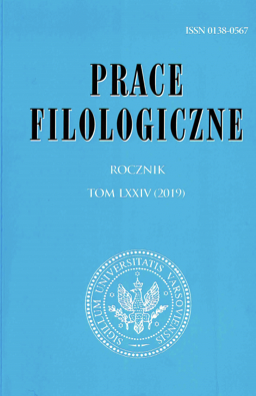Die Mährer und ihr politischer und sprachlicher Status
Moravians and their political and linguistic status
Author(s): Oldrich UlicnySubject(s): Sociolinguistics, Western Slavic Languages
Published by: Wydział Polonistyki Uniwersytetu Warszawskiego
Keywords: linguistic self-identification; historical regions of Bohemia; Moravia; and Czech Silesia; Moravian dialects and interdialects; language loyalty
Summary/Abstract: The history of Moravia and Moravians is an example of a nation and state whose position has declined from hegemonic to subordinate. The Moravians as a Slavonic tribe were unable to maintain their political power from the times of the Great Moravian Empire. After the defeat by Hungarians in the 10th century, the Moravian statehood was subject to Hungarian, Czech, Austrian, or German power, and their self-identification was formed by pressure from the outside. After the so-called Velvet Revolution of 1989, the effects of the old Communist centralism in the Czech Republic persisted: the new Prague centralism did not allow the democratic political system of the Czech Lands, i.e. of Bohemia, Moravia, and Silesia, to be restored, despite its proclamation in the new constitution. Currently the Moravian question seems to have been resolved in the Czech Republic, and the separatist forces have lost their importance. Even the creation of the Moravian standard language is not realistic, because the three groups of dialects and interdialects are too diverse. Moreover, language loyalty towards Standard Czech is higher in Moravia and Silesia than in Bohemia.
Journal: Prace Filologiczne
- Issue Year: 2019
- Issue No: 74
- Page Range: 329-339
- Page Count: 11
- Language: German

